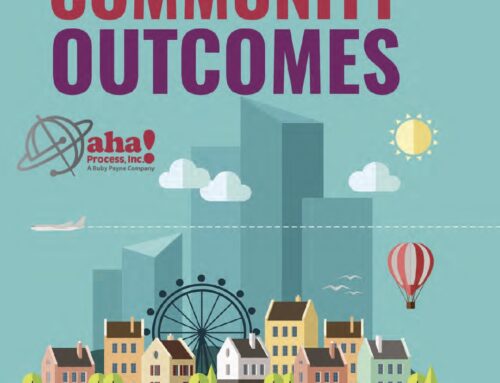
Dr. Ruby Payne has created an art of providing language necessary to discuss and address impactful issues of human development. In the Emotional Poverty workshop, she introduced the term “twisting off”. This was one of my personal aha! moments. While most people in the audience can recall someone who has twisted off, my competitive nature brags that I can personally recall twisting off in such quantity that I’ve chronicled my experiences by age to facilitate learning. Most of these examples resulted from a perfect balance of hormones, depression, and malevolence in life that threatened my safety and belonging. Twisting off is not the same as mental illness. The term “twisting off” is not in the DSM–5. What exactly does Dr. Payne refer to when she uses the term “twisting off”?
- Following a violent home invasion in my mid-20s, I went to Galveston, Texas, for spring break with a friend and stayed eight months, waitressing at Guido’s by day and partying by night. That was twisting off.
- In my 30s, after a decade of soberly building a wholesome life, my marriage painfully ended following a stillbirth. POOF. I found myself in a bar in Oklahoma, shooting pool with the Banditos. Twisting off level: expert.
- In my 40s, after 10 more years of rebuilding, the trauma of another marriage prompted me to replace sex with exercise and replace long dark curls with a platinum mohawk/drop fade. I replaced my Camry with a red 1990 Miata convertible, and I replaced romantic desire with spiritual health. I got a tattoo, lost weight, changed churches, and I am in the best health of my entire life. I finally got it right. Twisting off level: master.
Just as Dr. Payne made an art of providing the needed language to discuss twisting off, I have perfected the art of twisting off and have established through experiment that twisting off can be used to catapult improvement. I am anxious to see what my next twist-off holds.
A short, round lady wearing a house dress in the dollar store looked at my fresh platinum mohawk and gushed, “Oh, I just love your hair.”
“Thanks! I had a nervous breakdown, and it just came out this way!”
She replied, “Hey! I had a breakdown, and I didn’t get cool hair!”
“Maybe next time. It didn’t happen on my first go-round,” and we laughed and laughed.
To learn more about twisting off, read Emotional Poverty or attend an Emotional Poverty workshop.








